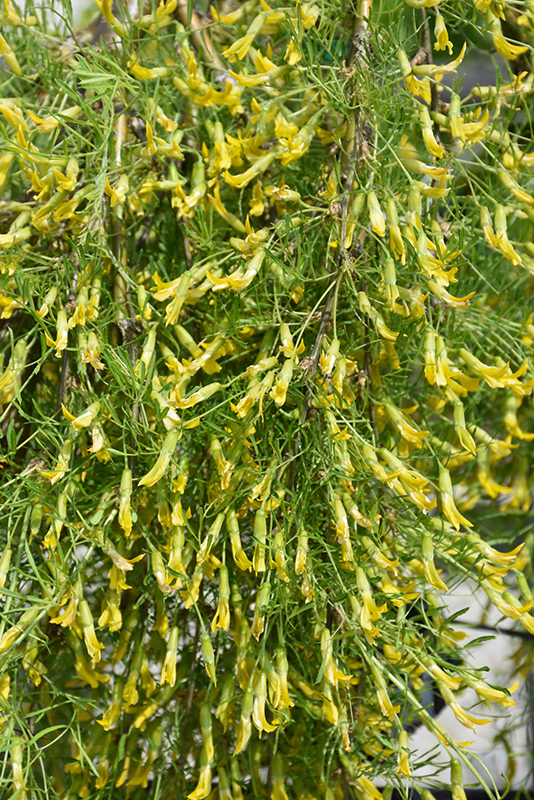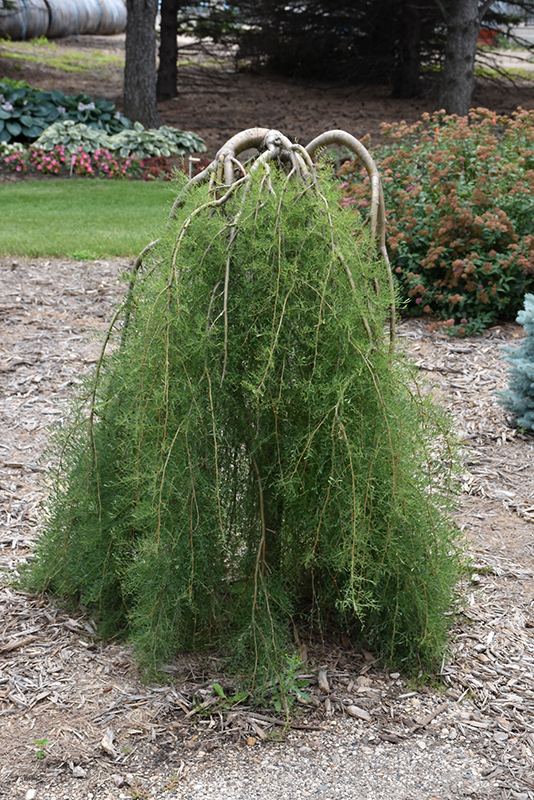Walker Weeping Caragana
Caragana arborescens 'Walker'
Height: 4 feet
Spread: 3 feet
Sunlight:
![]()
![]()
Hardiness Zone: 2a
Description:
A true garden specimen tree with almost ferny finely cut foliage and a highly pronounced weeping habit; usually grafted on a standard to a certain height; supremely hardy
Ornamental Features
Walker Weeping Caragana is primarily valued in the landscape or garden for its highly ornamental weeping form. It has yellow pea-like flowers hanging below the branches in mid spring. It has light green deciduous foliage. The deeply cut ferny pinnately compound leaves turn yellow in fall. The smooth olive green bark adds an interesting dimension to the landscape.
Landscape Attributes
Walker Weeping Caragana is an open multi-stemmed deciduous shrub with a rounded form and gracefully weeping branches. It lends an extremely fine and delicate texture to the landscape composition which can make it a great accent feature on this basis alone.
This shrub will require occasional maintenance and upkeep, and usually looks its best without pruning, although it will tolerate pruning. Gardeners should be aware of the following characteristic(s) that may warrant special consideration;
- Suckering
- Spiny
Walker Weeping Caragana is recommended for the following landscape applications;
- Accent
- General Garden Use
Planting & Growing
Walker Weeping Caragana will grow to be about 4 feet tall at maturity, with a spread of 3 feet. It tends to be a little leggy, with a typical clearance of 1 foot from the ground, and is suitable for planting under power lines. It grows at a medium rate, and under ideal conditions can be expected to live for approximately 30 years.
This shrub does best in full sun to partial shade. It prefers dry to average moisture levels with very well-drained soil, and will often die in standing water. It is considered to be drought-tolerant, and thus makes an ideal choice for xeriscaping or the moisture-conserving landscape. It is not particular as to soil type or pH, and is able to handle environmental salt. It is highly tolerant of urban pollution and will even thrive in inner city environments. This is a selected variety of a species not originally from North America.





